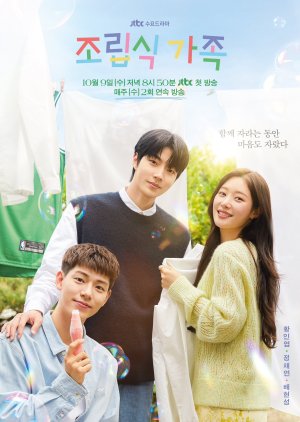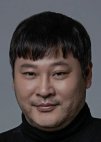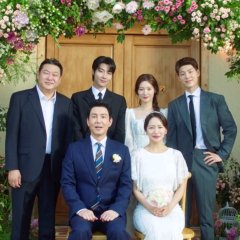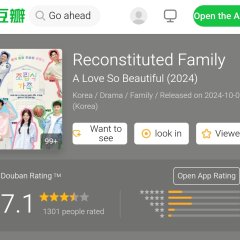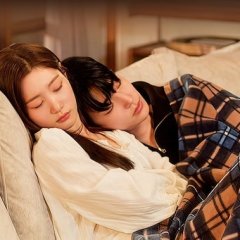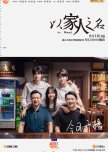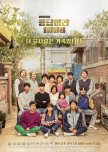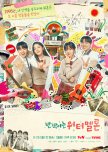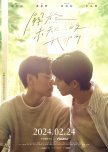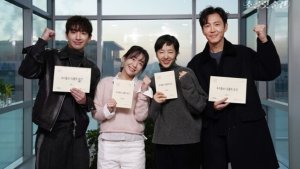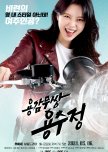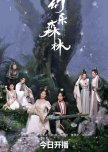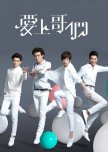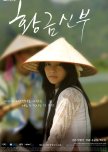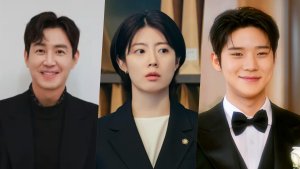 Choi Won Young confirmed to star alongside Nam Ji Hyun and Moon Sang Min in 'Dear Bandit'
Choi Won Young confirmed to star alongside Nam Ji Hyun and Moon Sang Min in 'Dear Bandit' A pesar de no estar relacionados biológicamente, Kim San Ha, Yun Ju Won y Kang Hae Jun comparten un vínculo estrecho entre ellos. El trío pasó su adolescencia criado por el padre de Ju Won, Jeong Jae, y el padre de San Ha, Dae Uk, quienes hicieron todo lo posible para brindarles una infancia feliz mientras se curaban de traumas delpasado. Sin embargo, al llegar a la edad adulta, San Ha y Hae Jun buscaron a sus familias biológicas, dejando atrás a Ju Won. Diez años después, los cinco miembros de la familia encontrada se reúnen, pero las cosas ya no son como antes. Ju Won tiene cierto resentimiento después de sentirse abandonada por San Ha y Hae Jun, mientras que los dos chicos luchan con nuevos sentimientos románticos hacia Ju Won y sus propios problemas familiares. ¿Podrán estos hermanos elegidos resolver sus problemas y se formará un romance? (Fuente: Viki) Edit Translation
- Español
- 한국어
- ภาษาไทย
- Arabic
- Título original: 조립식 가족
- También conocida como: A Prefabricated Family , Avengers Siblings , Fabricated Family , Família por Escolha , Family by Choice ครอบครัวหัวใจลิขิตเอง , Jolibsik Gajok , Сім'я за вибором , Семья по выбору , משפחה מבחירה , عائلة بالاختيار
- Director: Kim Seung Ho
- Guionista: Hong Si Yeong
- Géneros: Comedia, Romance, Juventud, Familia
Reparto y créditos
- Hwang In Yeob Papel principal
- Jung Chae Yeon Papel principal
- Bae Hyun SungKang Hae JunPapel principal
- Seo Ji HyePark Dal [Ju Won’s best friend]Papel secundario
- Choi Won YoungYun Jeong Jae [Ju Won's father]Papel secundario
- Choi Moo SungKim Dae Uk [San Ha's father]Papel secundario
Reseñas

Ella y la versión china
Decidí esperar a verla al saber que era un remake de la serie china "Sigue adelante".Me gusta ver las fuentes originales antes que las versiones.
Creo que esta, "Familia por elección", gana en simplicidad. Las series chinas (casi todas de las que yo he visto, que son pocas en comparación con las coreanas) suelen tener demasiados personajes e historias paralelas y dispersas.
Esta versión también gana en finales cerrados y consumados.
Pero, personalmente creo que la china gana en varios aspectos:
Actuación: De los cinco personajes principales, el padre cocinero su hija y el hijo del policía son mucho mejores en la china que en la coreana. El hijo adoptado y el padre policía están ahí ahí: En algunos momentos superan unos y en otros los otros.
Guion: Aunque más que el guion es la profundización en la psicología de los personajes, sus heridas, sus sufrimientos, sus dudas y reflexiones sobre la familia, el sentido de la vida, el perdón, la justicia, el sufrimiento, el amor....Las dificultades de educar a una chica entre dos padres y dos hermanos mayores todos varones...Me quedo con la china.
Ambientación: Después de ver la china, la coreana cuesta creer que no estás en un decorado. En la china te sentías completamente en casa... Esa mesa plegable para comer que se quitaba cuando no hacía falta y podía convertirse de cuadrada a redonda en función de que comieran los cinco o no...Esa media cortina entre la cocina y el comedor...
Creo que las dos merecen la pena ser vistas.
This remake didn’t get the memo.
First off, yes, I’m going to compare this to the original. Why? Because it’s a remake. Comparisons come with the territory—it’s like covering a hit song. If you can’t hit the high notes, people will notice.The Korean version tried to capture the heart of the original but ended up feeling underwhelming and, frankly, unnecessary. The original Chinese version delivered on every level, which allowed its more frustrating plot points to be forgiven. This remake? It didn’t earn that grace.
What I Liked
The acting. Bae Hyeon Seong absolutely nailed his role, bringing nuance and charm to a character that could have easily felt flat. The rest of the cast did their best, but even strong performances couldn’t save a series that lacked emotional punch and coherence.
What I Didn’t Like
Sanha’s Mom: Overpowering the Whole Series
In the original, she was cruel and manipulative, but her role served a purpose. Here? She’s like an invasive species, taking over the entire show, making everyone miserable, and facing zero consequences. No remorse, no punishment, nothing. She just packs her bags, skips the country, and is probably off to destroy her daughter next (no way that poor girl grows up without serious mental health issues).
And the best part? Sanha never even gets to confront her! Instead, he spends his last scene on his knees, begging at her slammed door. What’s next—a thank-you card?
Dad of the Year (or Decade?)
How does a dad let his son rot in a toxic hellhole for 10 years? They live a few hours apart! What’s the excuse—bad traffic? His indifference is baffling, and it makes his character entirely useless. Sanha’s dad is like furniture in this show—he’s there, but no one knows why.
Forgiveness on Fast-Forward
Then there’s Hea Joon’s “forgiveness” scene. His mom abandons him for 20 years, and after a single chat, he’s ready to let it all go? That’s not an emotional breakthrough—it’s just lazy writing.
Romance? What Romance?
Most of the romantic subplots felt like someone flipped a switch and said, “Okay, you two are in love now.” No build-up, no chemistry, no explanation. Dal’s affection was the only one that felt remotely believable, while the rest were as random as strangers in an elevator deciding to get married.
Juwon: What Happened to Her?
Young Juwon was vibrant and full of personality, but her adult version? A shadow of her former self. She had one great moment confronting Sanha’s mom, but the writers snatched it away before it could mean anything.
Pacing and Storytelling
The pacing had two speeds: snail and chaos. Either nothing happened, or everything happened all at once. The narrative felt unbalanced and disjointed, as if the writers had no idea how to structure the story.
Missing the Heart of the Original
The worst offense? This remake forgot to be about family. The original had warmth, heart, and a genuine “found family” vibe. Here, that emotional core was nowhere to be found.
Family by Choice is a watered-down remake that lacks the bittersweet realism of the original. It felt like the writers forgot what made the original so compelling in the first place.
If you loved the original, skip this. If you didn’t watch the original, skip this anyway.

